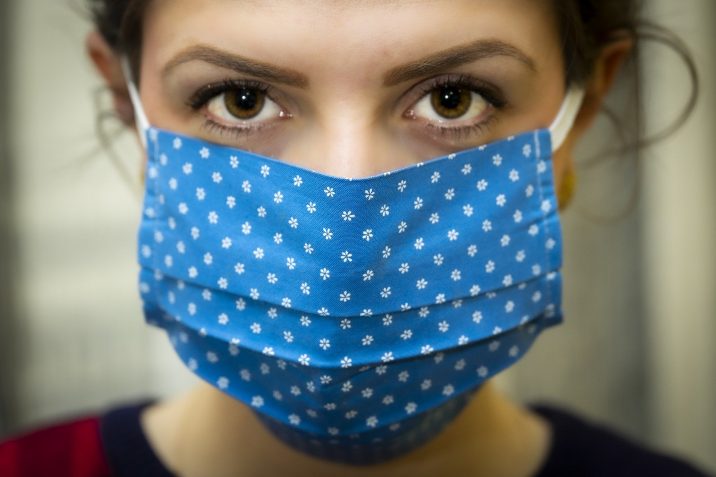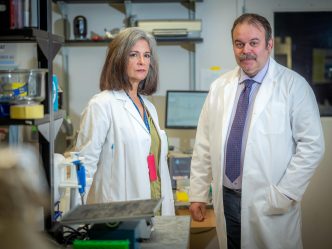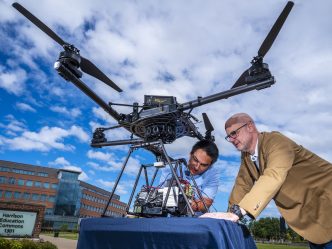As the number of confirmed COVID-19 cases continues to rise, it has many wondering what they should do if they believe they have been exposed, or if they should be screened even if they are asymptomatic.
Not everyone who is exposed to the virus will catch it, and some people who are infected will have only minor symptoms, according to Augusta University Health’s Chief Quality Officer and Associate Chief Medical Officer Dr. Pascha Schafer.
“Just because you’ve been exposed to someone with COVID-19 doesn’t mean you have the disease,” said Schafer. “The best thing to do is monitor symptoms, continue practicing social distancing and check your temperature twice a day for at least two weeks. If you start feeling sick, that’s when you need to consider being tested.”
Schafer offers more guidance on what to do if you have been potentially exposed to someone with the coronavirus.
How do I know if I was exposed?
To contract COVID-19, you generally need to be in close contact with the sick person to get infected. This can happen in a variety of situations, including living in the same household or being within three feet of someone with the coronavirus for at least three minutes. If you have not been in close contact with someone with the disease, your chances of getting sick are low.
Should I be tested for COVID-19 if I’ve been exposed?
If you feel you’ve been exposed to someone with COVID-19, you don’t have to be tested right away. Instead, quarantine yourself for 14 days and monitor your symptoms. If you begin showing signs of the coronavirus, consider being screened for the disease using Augusta University Health’s ExpressCare app. With this online tool, patients can now receive free virtual screenings for the coronavirus, 24 hours a day, seven days a week, with no appointment required. If the evaluation shows you need to be tested, a health care provider from AU Health will schedule you for one.
What symptoms should I watch for?
The most common symptoms of the mysterious novel coronavirus can be similar to the flu or a bad cold. And like the flu, the symptoms can progress to become life-threatening. To help you know the difference, look for symptoms that can include shortness of breath, fever, body aches, nausea, diarrhea, the loss of taste and smell, or even the feeling you might pass out. Also, consider if you’ve been exposed to someone with COVID-19 and seek medical attention in the emergency department if your symptoms become severe.
If I’m asymptomatic, can I still be tested?
AU Health is now offering COVID-19 testing for asymptomatic people living in pre-identified Georgia counties hardest hit by the coronavirus. Those counties include: Baker, Butts, Calhoun, Clay, Crisp, Dougherty, Dooly, Early, Hall, Lee, Macon, Marion, Miller, Mitchell, Randolph, Sumter, Terrell, Turner, Upson, Wilcox and Worth.
Asymptomatic people living in these areas can be tested for COVID-19 by first scheduling a free screening through the AU Health ExpressCare app, by calling 706-721-1852 or by visiting a drive-thru specimen collection location closest to them.
Can critical infrastructure workers be tested now?
AU Health is prioritizing testing for all critical infrastructure workers, no matter where they live, and includes those individuals working in the areas of: health care (including at-home caregivers of medically fragile patients), energy, emergency services, financial sector, food and agriculture, transportation, water supply/utilities, information technology, communications (including news media), nuclear reactor/waste, transportation, waste water and sewer, and defense.
The easiest way to know whether you are considered a critical infrastructure worker is if your job requires you to work outside of the home during the mandated shelter-in-place order.
What should I do if I was in close contact with someone with COVID-19 and got sick?
Isolate yourself at home from others, get tested and monitor your symptoms. Be sure to notify your health care provider of your test results and seek medical attention if your condition worsens. Learn more about what it means to test positive for COVID-19.
What should I do if I was in close contact with someone with COVID-19 and didn’t get sick?
If you have been exposed to someone with COVID-19 and did not become ill, avoid going to public places for 14 days and monitor your symptoms. Learn more about what it means to test negative for COVID-19.
AU Health is Georgia’s leader in COVID-19 testing, and the health system has expanded its efforts to provide testing for some rural hospitals, two Augusta hospitals and nursing homes in Georgia. AU Health has also started integrating with the Georgia Department of Health to have those screened as positive tested at their local Department of Public Health testing facility.
Read the latest news on COVID-19 on our dedicated resource page, and check out the Augusta University Expert Center to view a complete list of our experts.
 Augusta University
Augusta University




